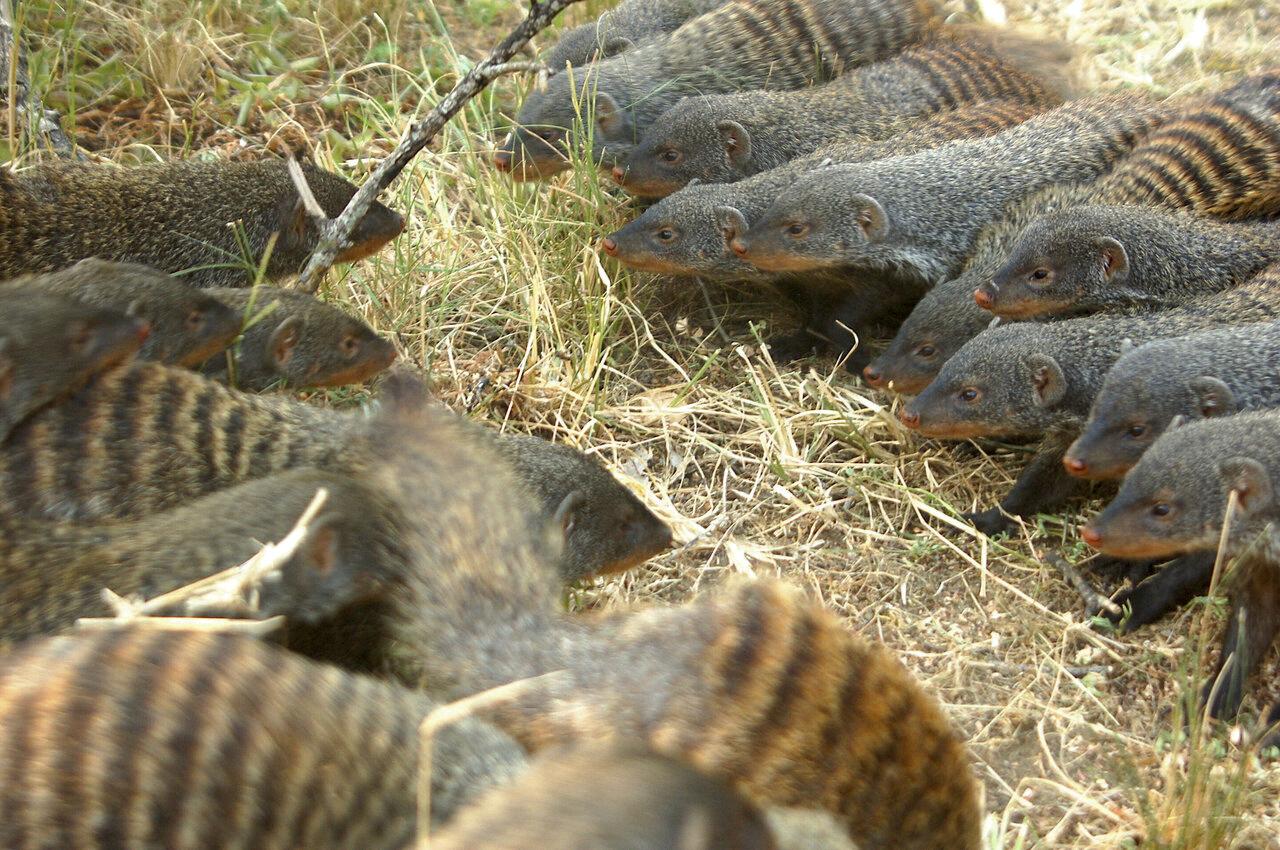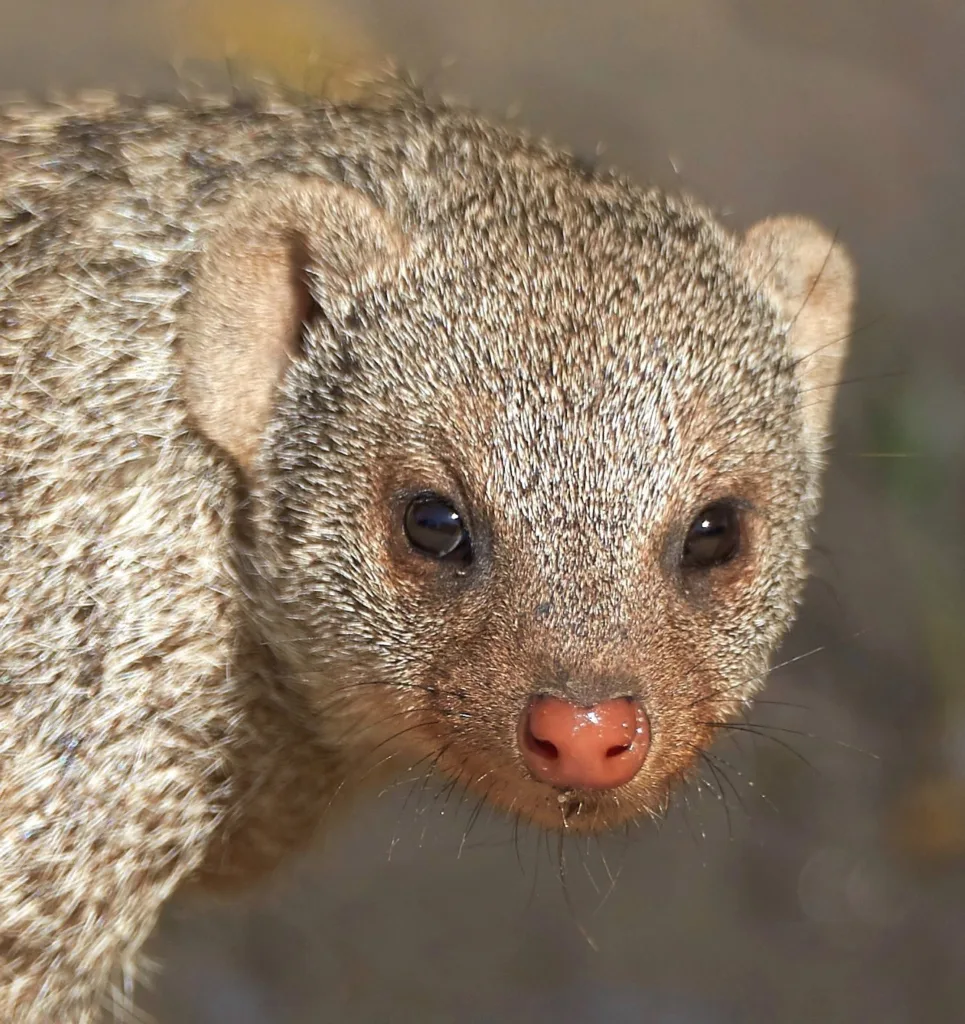The mongoose is a small carnivorous mammal that primarily feeds on small mammals, birds, reptiles, eggs, and occasionally fruit. However, what sets them apart is their ability to fight and kill venomous snakes, especially cobras. In fact, the mongoose is renowned for its ability to take on snakes and win.
One of the reasons why mongooses are so adept at taking on snakes is due to their specialised acetylcholine receptors. These receptors render them immune to venom, making them the perfect predator agaist venomous snakes. Their thick coats and quick speed also come in handy during conflicts, allowing the mongoose to avoid being bitten or struck by the snake.
When it comes to fighting venomous snakes, the mongoose is not afraid to attack. In fact, they will actively seek out snakes as prey. While snakes will kill a mongoose to protect themselves, cobras and black mambas are unlikely to actually eat the mongoose. Larger snakes such as pythons have been known to eat mongooses, but this is rare due to the mongoose’s ability to evade and fight back against predators.
Despite their reputation for being fierce predators, mongooses are generally non-aggressive towards human beings. However, at times they may bite, which can be dangerous due to the risk of streptococcal sepsis. Early debridement of the wound and early administration of broad-spectrum antibiotics can be life-saving in such cases.
The mongoose’s ability to fight and kill venomous snakes is a fascinating aspect of their biology. Their specialised acetylcholine receptors, thick coats, and quick speed make them the perfect predator against venomous snakes. However, it is important to remember that while mongooses are generally non-aggressive towards humans, they can still pose a risk if provoked.
Do Mongoose Eat Snakes?
Mongooses do eat snakes. In fact, many species of mongooses, particularly those belonging to the genus Herpestes, are known to actively hunt and kill venomous snakes for food. However, it’s worth noting that not all species of mongooses eat snakes, and their diet can vary depending on their habitat and availability of prey. Apart from snakes, mongooses also feed on small mammals, birds, reptiles, eggs, and sometimes fruits.

Why Do Mongooses Eat Snakes?
Mongooses are known to eat snakes for various reasons. One of the main reasons being their diet, which primarily consists of small rodents and insects, but also includes reptiles such as snakes. As snakes are abundant in their natural habitat, mongooses have evolved to include them in their diet.
Another reason is the fact that snakes are a potential threat to mongooses. Snakes such as cobras are venomous and can pose a danger to mongooses. Therefore, mongooses have developed a natural defense mechanism against snakes, which is their ability to fight and kill them. This ability has made them popular as a natural predator of snakes, especially cobras.
Furthermore, mongooses are immune to snake venom due to their specialised acetylcholine receptors. This immunity allows them to attack and kill snakes without being affected by their venom.
Mongooses eat snakes as a part of their natural diet, to defend themselves against potential danger, and becuse they have developed a natural immunity to snake venom.
Do Mongoose Get Killed By Snakes?
Mongoose can get killed by snakes. Snakes are a natural predator of the mongoose and will attack them if they feel threatened or if the mongoose is in their territory. However, not all snakes will eat the mongoose once they have killed them. For example, cobras and black mambas are unlikely to eat the mongoose after they have killed them. On the other hand, larger snakes such as pythons have been known to eat mongooses. It is important to note that while snakes may kill mongooses, it is not always a guarantee that they will eat them.
Can Mongoose Harm Humans?
Mongooses are generally non-aggressive towards humans and do not pose a significant threat to them. However, there have been instances where mongooses have bitten humans, causing wounds that can be potentially dangerous. These wounds can lead to the development of streptococcal sepsis, a serious bacterial infection that can be life-threatening if left untreated.
It is important to note that the risk of being bitten by a mongoose is relatively low, as they tend to avoid human contact. However, if a bite does occur, it is essential to seek medical attention immediately. Early debridement of the wound and administration of broad-spectrum antibiotics can help prevent the development of serious complications.
While mongooses are generally not a threat to humans, it is stll important to exercise caution and seek prompt medical attention if you are bitten by one.

Conclusion
Mongooses are known for their ability to hunt and kill venomous snakes, particularly cobras. Their unique acetylcholine receptors make them immune to snake venom, while their speed and agility make them formidable opponents. Although snakes may attack mongooses in self-defense, larger snakes such as pythons can also prey on mongooses. Despite their reputation for being snake hunters, mongooses are generally non-aggressive towars humans. However, in rare cases, they may bite and cause potentially life-threatening wounds. Therefore, it is important to seek immediate medical attention and administer proper treatment to prevent possible complications. the mongoose’s diet and hunting habits are a fascinating example of the intricate relationships between different species in the animal kingdom.
